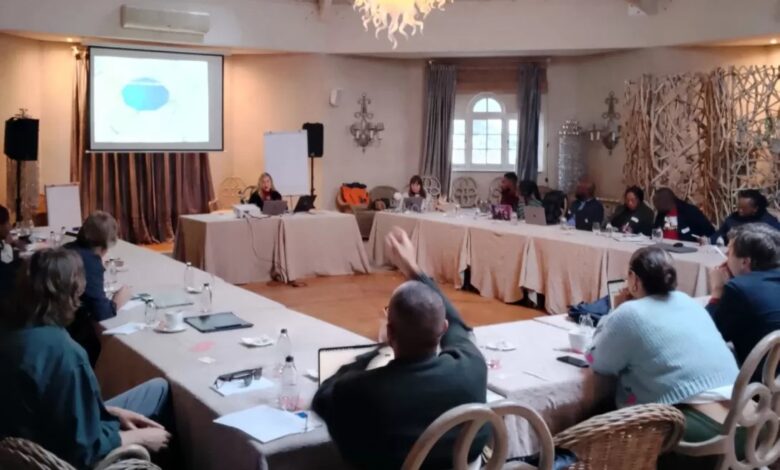ADDO Symposium in Cape Town Highlights Urgent Need to Combat Crypto-Fueled Financial Crimes in Africa

Cape Town, May 27, 2025 – As cryptocurrency adoption accelerates across Africa, experts warn of a rising threat: a surge in crypto-fueled financial crimes that could threaten the continent’s economic stability and development.
The warning came during the recent symposium on “Investigating Illicit Financial Flows and Cryptocurrencies in Africa,” held in Cape Town from May 23 to 27, 2025. Organized by Code for Africa (CfA) in partnership with Deutsche Gesellschaft für Internationale Zusammenarbeit (GIZ) under the African Digital Democracy Observatory (ADDO) initiative, the event convened 30 specialists—including investigative journalists, researchers, and blockchain technologists—to examine the new challenges posed by digital financial crimes.
Participants emphasized that without prompt and coordinated action, Africa risks becoming a hotspot for money laundering, fraud, and other illicit activities facilitated by blockchain transactions. They called for urgent reforms, stronger regulations, and enhanced cross-border cooperation to prevent these crimes from undermining economic progress.
During the symposium, Tax Justice Network Africa (TJNA) stressed the importance of robust regulatory frameworks. Ms. Mercy Kamau, TJNA’s Communications Officer, stated, “Cryptocurrencies should be tools for empowerment, not enablers of crime. It is time regulators step up and perpetrators face the consequences.” She highlighted the potential for cryptocurrencies to support charitable causes and promote financial inclusion but warned that misuse must be addressed.
Ms. Kamau also urged journalists to deepen partnerships with civil society organizations and called on institutions to provide access to critical data, which is vital for producing impactful investigative reporting on illicit financial flows and crypto-related crimes.
Read Also: President Ruto signs the Gambling Control Bill into law
The event also focused on the media’s role in responsible crypto coverage. Ms. Yasmin Elgouze from the Thomson Reuters Foundation shared insights from training journalists on blockchain literacy, cautioning that “The hype around blockchain often overshadows the harm it can cause when unregulated.”
Meanwhile, Mr. Simon Dingle, author of Beyond Bitcoin, cautioned against fearmongering, noting that “It’s not just shadowy hackers; increasingly, it’s insiders exploiting crypto’s opacity for old-school corruption.”
Ms. Denisse Rudich of Rudich Advisory provided an overview of the global regulatory landscape, highlighting recent scandals and the ongoing challenge regulators face. “We are witnessing a significant shift where regulation is continually playing catch-up with rapid technological innovation. This lag creates critical loopholes that are ripe for exploitation by bad actors,” she explained.
Participants collaborated to develop investigative toolkits and strategized on forming cross-border partnerships. They recognized that addressing crypto crime requires a united effort.
In closing, Mr. Daniel Wegner of GIZ emphasized, “This is not just about crypto. It’s about building the capacity to hold power to account in an increasingly digitised financial world.”
As cryptocurrencies reshape Africa’s financial ecosystem, experts agree the continent must bolster its investigative capacity, strengthen regulatory frameworks, and foster international cooperation. Africa cannot afford to remain passive in the face of these emerging digital financial threats.
Tax Justice Network Africa reaffirmed its commitment to building a just and equitable continent, working alongside researchers, policymakers, and civil society to transform tax policies, challenge harmful investment practices, enhance tax transparency, and restore sovereignty over natural resources.
Source: Tax Justice Africa























